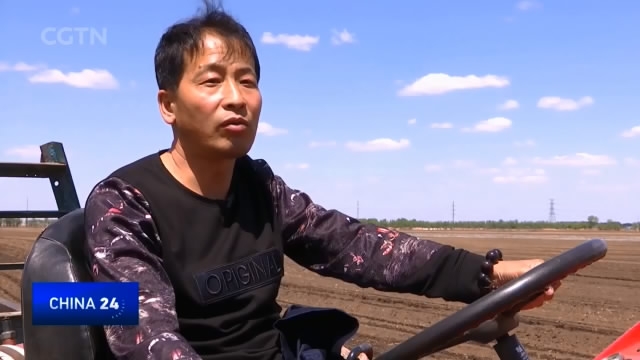
21:16, 08-May-2018
Where Have You Bean? More demand than supply leads to soybean deficit
02:57

Another factor likely to impact soybean trade -- new government subsidies in China's northeast. The country's demand for soybeans far outstrips its supply, forcing it to rely on imports. The new measures aim to get to the root of the problem. Reporter Xu Xinchen visited farmers in the northeast for this story.
These bags of soybean seeds will be soon planted, each 50 kilograms of seeds will yield 3 to 4 thousand kilograms of soybeans.
Wang Yinglin is one of the farmers in China's northeast agricultural regions. For this year's crops, he's decided to plant soy beans instead of corn.
WANG YINGLIN FARMER "The government is trying to encourage farmers to grow more soybeans. In our village, we can now get 3,500 yuan or around 550 US dollars in subsidies for each acre of soybeans planted. That's much higher than corn."
China's northeastern provinces of Heilongjiang and Jilin have rolled out subsidies to encourage farmers to grow more soybeans -- which many see as a way for China to reduce its dependency on soybean imports. In 2017, China imported almost 100 million tons of soybeans -- over seven times that of the country's own soybean production that year. However, that huge demand was mainly for genetically modified soybeans from countries like the US, Brazil, and Argentina.
WANG CHENG, SUPERVISOR JILIN QIANCHENG AGRICULTURAL DEVELOPMENT COMPANY "Genetically modified soybeans have a better immune system, which increases their production. But genetically modified soybeans are not permitted to grow in China. Therefore, the price of genetically modified soybeans is more competitive than domestic ones."
While farmers welcome subsidies that boost the competitiveness of domestic soybeans, they are also hoping to see expanded distribution channels.
WANG CHENG, SUPERVISOR JILIN QIANCHENG AGRICULTURAL DEVELOPMENT COMPANY "I sold my soybeans to local soy sauce producers and oil pressing mills, however, the demand was limited. If one day there can be a market system that gives farmers the confidence that their soybeans can sell, and they can make more money than growing corn, more farmers will be willing to grow soybeans."
China is now seeing decreased soybean imports from the US at a time of tense trade relations between the two countries -- yet, the US is one of the largest sources for soybeans to meet China's huge demand.
XU XINCHEN GONGZHULING, JILIN PROVINCE DONE A greater willingness of farmers here to grow soybeans might ease China's heavy reliance on soybean imports in the long term, but for now at least, imports from countries other than the US have picked up. Xu Xinchen, CGTN, Gongzhu Ling, Jilin Province.

SITEMAP
Copyright © 2018 CGTN. Beijing ICP prepared NO.16065310-3
Copyright © 2018 CGTN. Beijing ICP prepared NO.16065310-3